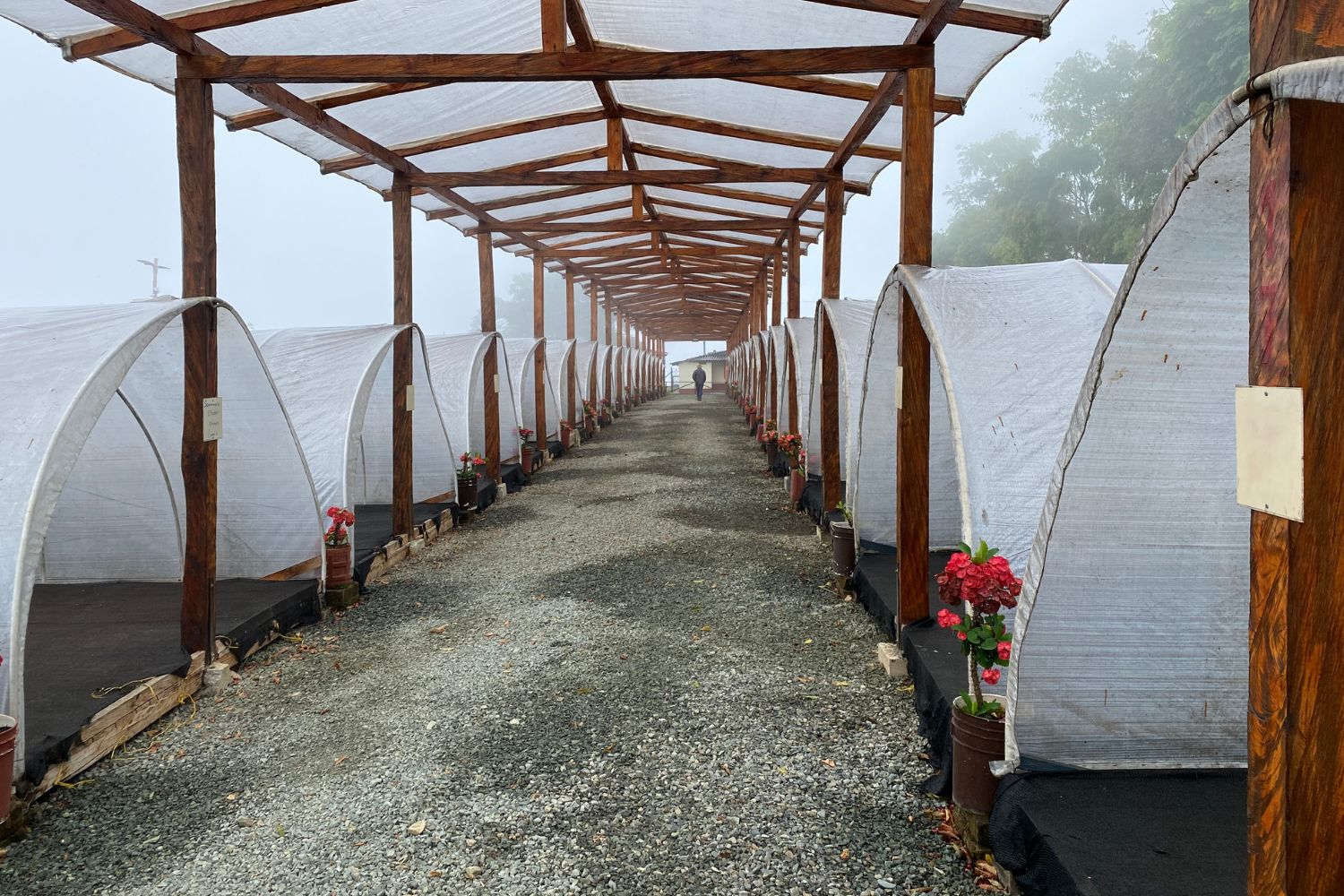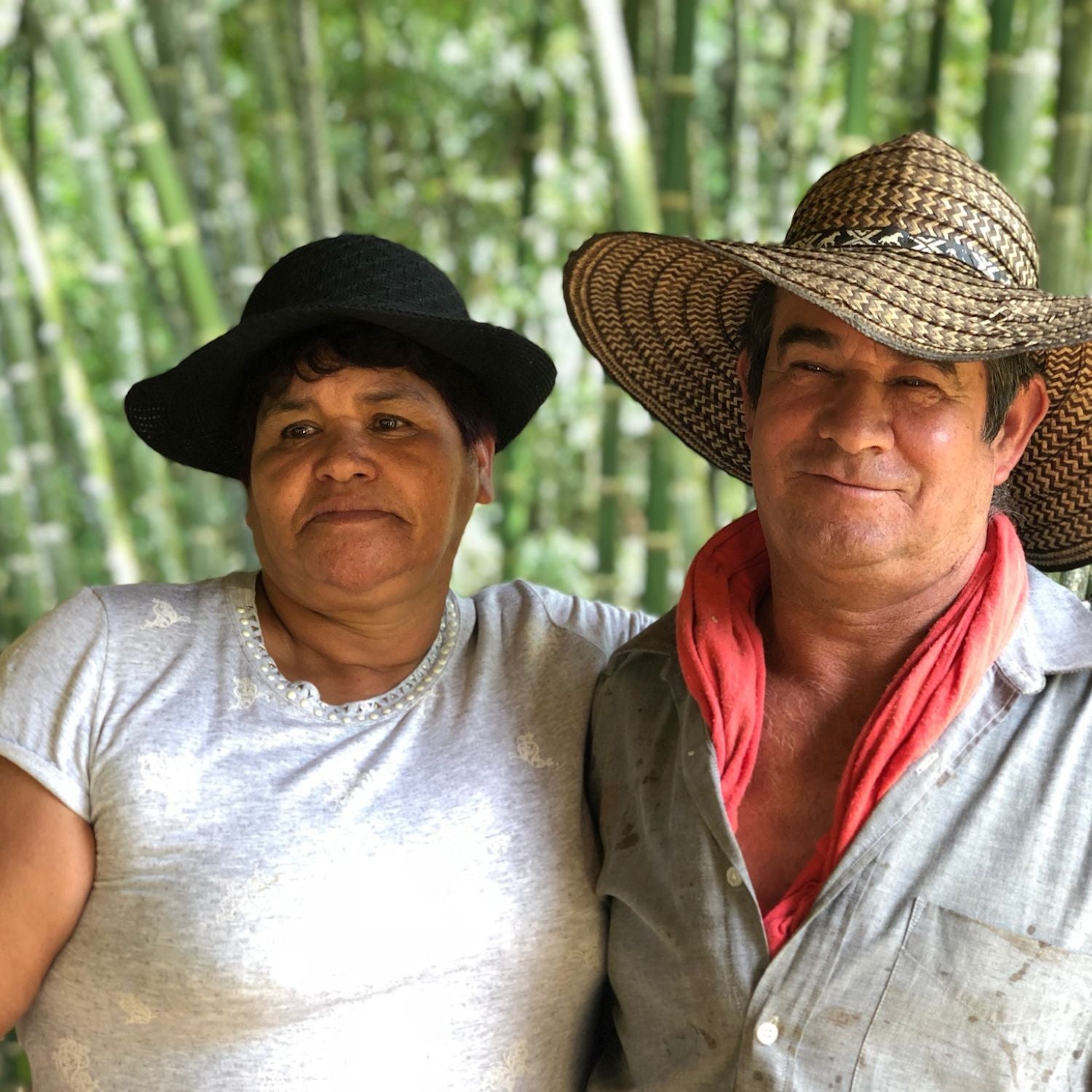Karambi's washed coffees are first mechanically depulped, then fermented for 8-12 hours in concrete tanks. Karambi skips the additional soaking step commonly followed in East Africa—sometimes called a double or Kenya-style fermentation—having found quality to be consistently higher without it.
Once the fermentation stage is finished the coffee is moved to an elongated channel where it is simultaneously washed and graded. As the channel fills with water, the densest coffee sinks to the bottom as the less-dense coffee floats over wooden slats into the next sections. This quick, simple process separates the coffee into five different quality tiers from highest to lowest density. The most dense coffee represents mature, uniformly ripe fruits and is isolated to create top lots like this one.
When washing is complete, the resulting parchment coffee is "pre-dried" for 12-20 hours under shade, then moved to one of the station's 100 mesh drying platforms. Drying can take anywhere from a few weeks to 60 days depending on the weather. During this time Karambi's staff regularly turn the coffee to promote good airflow and uniform drying.
We're pleased to be working once again with Sucafina and their Rwandan affiliate, RWACOF, who manage Karambi as well as the dry milling infrastructure in Kigali. Aided by their relatively larger scale, we've been consistently impressed with Sucafina's sustainability initiatives in East Africa (where they're especially well attuned to the challenges of implementing farmgate projects that are effective for individual people despite the incredibly small scale of coffee cultivation here).








Leave a comment
This site is protected by hCaptcha and the hCaptcha Privacy Policy and Terms of Service apply.